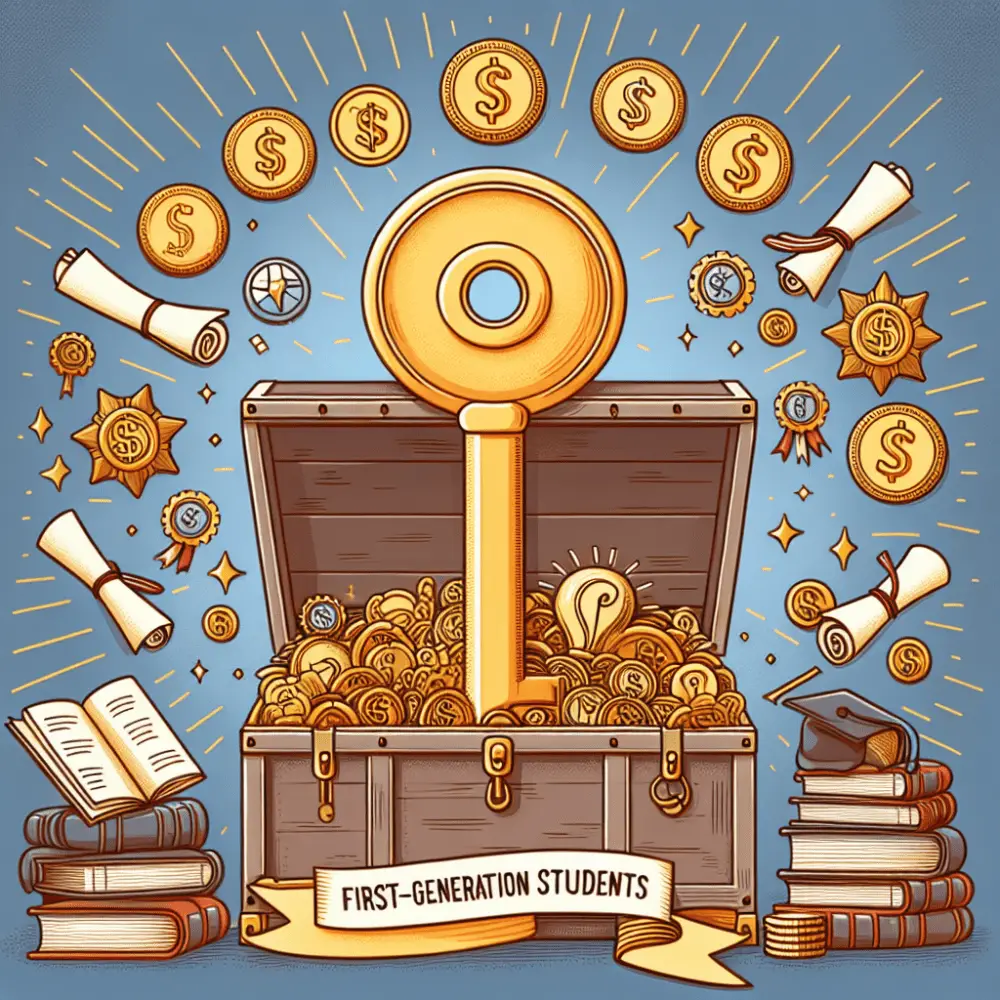
Empowering First-Generation Students: Unlocking Scholarships for Success
Education is often considered the key to success and a stepping stone towards a better future. However, for many first-generation students, the path to higher education can be filled with financial obstacles. The rising cost of tuition, textbooks, and living expenses can seem insurmountable for those who lack the necessary financial resources. Fortunately, there are various scholarships available specifically designed to empower and support these students in their pursuit of academic excellence. By unlocking these scholarships, first-generation students can overcome financial barriers and embark on a transformative educational journey.
The Importance of First-Generation Scholarships
First-generation students, defined as those whose parents or legal guardians have not completed a bachelor’s degree, face unique challenges when it comes to accessing higher education. These individuals often lack guidance and support systems that are commonly available to their peers from families with prior college experience. Furthermore, they may feel overwhelmed by the unfamiliar terrain of navigating the complex college application process and securing the necessary financial aid.
First-generation scholarships play a crucial role in uplifting these students by providing them with financial assistance and mentorship opportunities. These scholarships aim to bridge the gap between their aspirations and limited resources, empowering them to pursue their dreams without the heavy burden of student loans or excessive financial stress.
Types of First-Generation Scholarships
1. National Scholarships
National scholarships such as The Gates Scholarship, QuestBridge National College Match Program, Coca-Cola Scholars Program, and Dell Scholars Program offer substantial financial aid packages to first-generation students across the United States.
2. State-Specific Scholarships
In addition to national scholarships, many states have their own programs aimed at supporting first-generation students. For example, the Washington State Opportunity Scholarship (WSOS) provides financial assistance to low- and middle-income students pursuing degrees in high-demand fields such as science, technology, engineering, math (STEM), and health care.
3. College/University Scholarships
Colleges and universities often have their own scholarship programs specifically tailored for first-generation students. These scholarships may cover a portion or even the entirety of tuition fees, allowing these students to focus on their studies rather than worrying about how to fund their education.
Unlocking Scholarships: Tips for Success
1. Research Extensively
The key to unlocking scholarships lies in thorough research. Students should explore various scholarship databases and websites such as Fastweb, Scholarships.com, and College Board’s BigFuture to find opportunities that align with their academic interests, extracurricular involvement, and personal circumstances.
2. Tailor Applications
When applying for scholarships, it is crucial to tailor applications to each opportunity. Students should carefully read the eligibility criteria and requirements for each scholarship and customize their applications accordingly. By highlighting their unique experiences, achievements, and future goals, applicants can increase their chances of standing out among other candidates.
3. Seek Guidance
First-generation students should seek guidance from college counselors, teachers, mentors, or organizations specializing in supporting underrepresented students throughout the scholarship application process. These individuals can provide valuable insights and advice on crafting compelling essays and securing strong letters of recommendation.
Frequently Asked Questions (FAQ)
- Are there scholarships specifically for first-generation students?
- Where can first-generation students find scholarships?
- How can I increase my chances of securing a scholarship?
- Can first-generation scholarships cover all educational expenses?
- What other sources of financial aid are available for first-generation students?
Yes, there are numerous scholarships specifically designed to empower and support first-generation students in their pursuit of higher education. These scholarships aim to bridge the financial gap and provide mentorship opportunities for these individuals.
First-generation students can find scholarships through various resources such as scholarship databases, college websites, national scholarship programs, and state-specific initiatives. Websites like Fastweb, Scholarships.com, and College Board’s BigFuture provide extensive lists of scholarship opportunities.
To increase your chances of securing a scholarship, it is important to conduct thorough research on available scholarships that align with your interests and circumstances. Tailoring your applications to each opportunity, highlighting your unique experiences and achievements, seeking guidance from mentors or professionals, and submitting applications before the deadlines can significantly enhance your chances of success.
Scholarships vary in their coverage. While some scholarships may cover all educational expenses including tuition fees, textbooks, and living expenses, others may only cover a portion of these costs. It is essential to carefully review the terms and conditions of each scholarship before applying.
In addition to scholarships, first-generation students may be eligible for other forms of financial aid such as grants, work-study programs, student loans with favorable terms or repayment options specific to their circumstances. Exploring these options alongside scholarships can help alleviate the financial burden of pursuing higher education for these individuals.
In conclusion, empowering first-generation students through scholarships not only helps them overcome financial barriers but also enables them to unlock their full potential and achieve academic success. By conducting extensive research, tailoring applications, seeking guidance, and staying proactive throughout the application process, these students can increase the likelihood of securing scholarships that will pave the way for a bright future.












